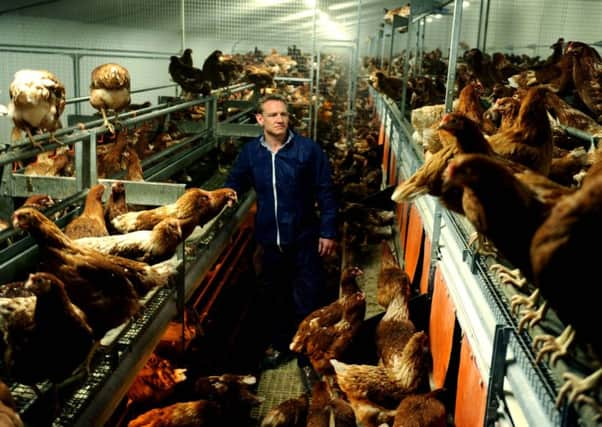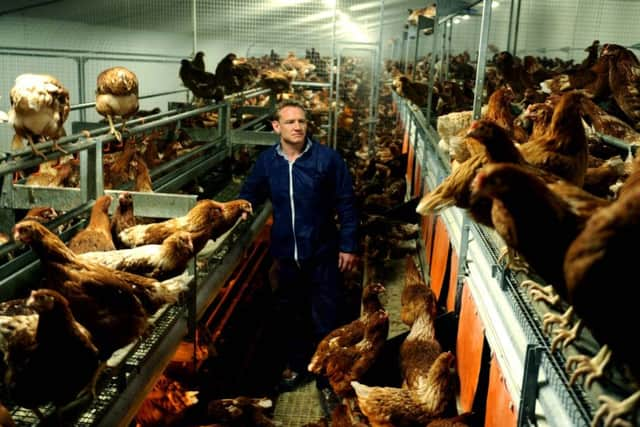Farmers' fears as bird flu threatens to wipe free range poultry from supermarkets


A bird flu outbreak has led to an order meaning free range poultry has had to be kept indoors this winter. The Government introduced a prevention zone on December 6 which is currently due to stay in place until February 28.
But if the order continues beyond the end of this month, European regulations mean the birds will lose their free-range status and poultry products will have to be relabelled in supermarkets.
Advertisement
Hide AdAdvertisement
Hide AdThe NFU have written to retailers in a bid to allow the free-range status to remain in place while farming leaders have meeting with European officials in the hope the ban can be lifted over fears livelihoods will be at risk if it remains into March. One of several affected Yorkshire businesses is James Potter Eggs, in Catton near Thirsk in North Yorkshire.


The company has 300,000 hens and employs around 40 people. It supplies major supermarkets such as Asda, Tesco, Sainsbury’s and the Co-op and recently signed a deal with Morrisons.
Joint owner James Potter says the situation is causing concern. “It is having an impact at the moment. It is not ideal but I think it is in the interests of the birds’ welfare. The risk is reducing but it has been different this year. It has caught the industry a bit off-guard.
“We are all about free range and want the birds outside. Already in terms of labour it is having an impact on us. There are a lot of costs. In terms of labelling, we would have to apply a label to all products.”
Advertisement
Hide AdAdvertisement
Hide AdOn January 16, the Department for Environment, Food and Rural Affairs (Defra) confirmed a case of bird flu in a flock of about 6,000 turkeys at a farm in East Lindsey, Lincolnshire.


Earlier in the month, the strain was also discovered in two small backyard flocks of chickens and ducks on premises near Settle in North Yorkshire, and Carmarthenshire, south-west Wales.
Last week, Defra said tens of thousands of birds were being culled at a farm in Lancashire to prevent further spread of bird flu. The H5N8 avian flu strain has already been confirmed in pheasants in two farms in Wyre, and proactive culling of 63,000 birds, including pheasants, partridges and ducks, at a third site nearby has been ordered.
Potter says bird flu is an annual problem but there have been more cases identified this year .
Advertisement
Hide AdAdvertisement
Hide Ad“This is a problem for the industry. It always has been a problem for the industry and it is not going to go away. Going forward, we will need to work together so biosecurity is kept at its highest.”
Potter says he is hopeful the situation can be resolved before the end of this month but is not expecting a decision until the “last minute”.
“Bird flu comes with annual migration. The UK is not on a major migration route and Europe has a lot more cases than we have. But it still does impact us during the winter period. The risks should be going down so hopefully the birds will be allowed outside.”
NFU President Meurig Raymond said the union is working with Defra while continuing to lobby European leaders for an extension to the current order allowing products to still be classified as free range.
Advertisement
Hide AdAdvertisement
Hide Ad“These are unprecedented times and I remain very concerned about the future of the free range poultry sector for both meat and egg products should the housing order remain in place without an exemption that enables producers to market those eggs and meat to market as free-range.
“Downgrading these products would have a huge impact on margins in the sector.”